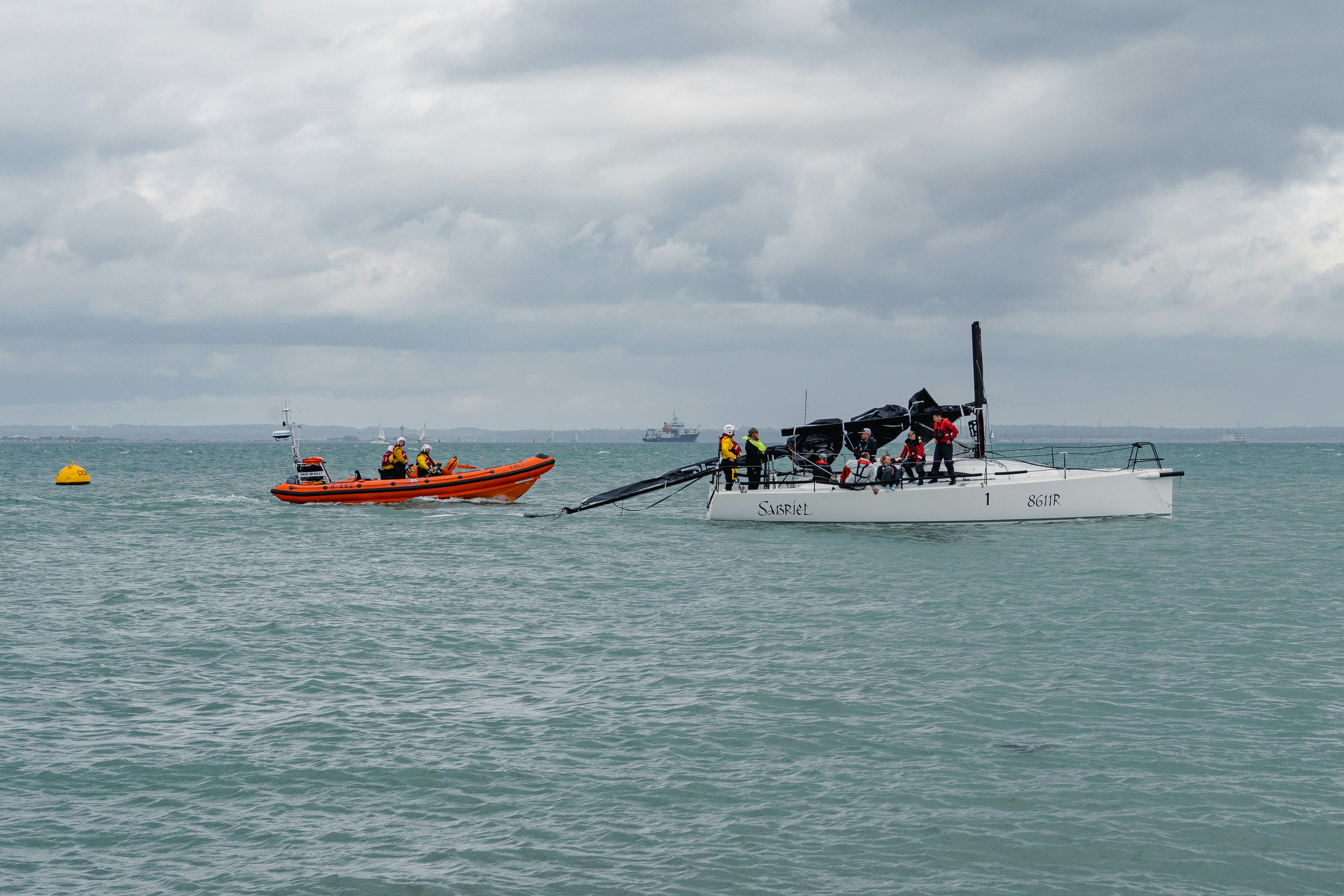Even with careful planning and maintenance, problems can occur at any time on the water. Here’s some practical advice for emergency preparedness and response:
1. Engine Failure
What to Do:
- Look for easy fixes like empty fuel tanks or tripped circuit breakers.
- If you have a separate emergency battery, use it.
- If you can’t find any obvious fixes or an extra battery, use your VHF radio or phone to call for help.
- If you’re drifting, drop the anchor to keep your boat steady until help comes or you solve the problem and can safely return home.
Prevention Tips:
- Stick to a maintenance schedule. Regularly check your oil and fuel system, and clean or replace filters as needed.
- Do a pre-trip check. Look for leaks, loose connections, and other potential issues.
- Keep spare parts handy. Have belts, fuses, and a basic toolkit on hand to tackle minor problems right away.
- Don’t overload your boat. Excess weight can put extra strain on your engine and lead to trouble.
» MORE: Engine Maintenance Tips
2. Bad Weather
What to Do:
- Look at the weather forecast before you head out and keep an eye on updates while you're on the water.
- If bad weather’s rolling in, steer your boat to the nearest safe spot or harbor.
- Make sure everything’s tied down and slow down to prepare for rough weather.
- Don’t forget to put on those life jackets!
Prevention Tips:
- Learn how to read weather signs and forecasts, so you know what’s coming.
- Set up a plan for different weather situations, so you know what to do if things go south.
- Stock Up. Make sure your boat has weather-resistant gear and supplies to handle unexpected conditions.
3. Collision
What to Do:
- Make sure everyone on board is okay and call for medical help if necessary.
- Check your boat for damage.
- Exchange contact information and insurance details with the other party involved. Make sure to take photos of the incident if possible.
- Notify authorities, especially if there are injuries or significant damage.
- Finally, move your boat to a safe location if possible.
Prevention Tips:
- Always be on the lookout for other boats and obstacles.
- Stick to boating rules and right-of-way guidelines.
- Make sure your navigation lights are working and use them, especially in poor visibility.
- Go slow in busy areas and adjust your speed based on the traffic and weather.
- Avoid drinking while boating. It compromises with your judgment and reaction time.
- Take a boating safety course. It can teach you more about avoiding collisions and safe practices.
4. Fire Aboard
What to Do:
- Let everyone on the boat know there’s a fire and instruct them to stay calm.
- Grab your fire extinguisher. Aim at the base of the fire and use short bursts.
- If you can do it safely, turn off the power to prevent electrical fires from spreading.
- Use your VHF radio or phone to call for help.
- If the fire gets out of hand, get everyone off the boat safely. Put on life jackets and grab any flotation devices.
- If you’re waiting for help, use flares or an emergency beacon to make it easier for rescuers to find you.
Prevention Tips:
- Check your fire extinguishers. Keep them in good shape and make sure they’re up to date.
- Make sure everyone knows where the fire extinguishers are and how to use them.
- Regularly check for any worn or faulty wiring to prevent electrical fires.
- Store anything flammable safely.
5. Capsizing
What to Do:
- Keep your cool and make sure everyone on board is accounted for.
- Put on life jackets and grab any other flotation devices you have.
- Stay close to the boat. It’s easier for rescuers to spot the boat than people.
- Use your VHF radio or phone to get emergency assistance. Let them know where you are and what’s going on.
- Light up flares or use an emergency beacon to make sure rescuers can find you.
Prevention Tips:
- Spread weight evenly and don’t overload the boat.
- Don’t head out if the weather looks bad. It’s safer to wait for better conditions.
- Regularly check for leaks and fix any issues to keep your boat in tip-top shape.

